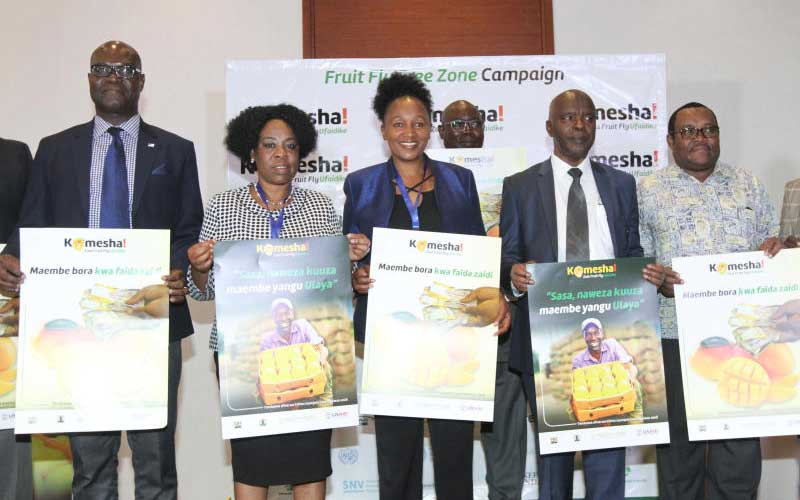×
The Standard e-Paper
Home To Bold Columnists

Esther Kimani, Kephis Managing Director (left), Betty Kibaar from Rockefeller Foundation and Makueni Governor Kivutha Kibwana (right) launch Komesha Fruit Fly Campaign at Radisson Blu Hotel on Friday. [Elvis Ogina, Standard]
Kenya’s bid to secure international markets for the mango fruit has started to take shape. This is after players launched an initiative to end fruit fly pests that saw the country locked out of European Union markets.